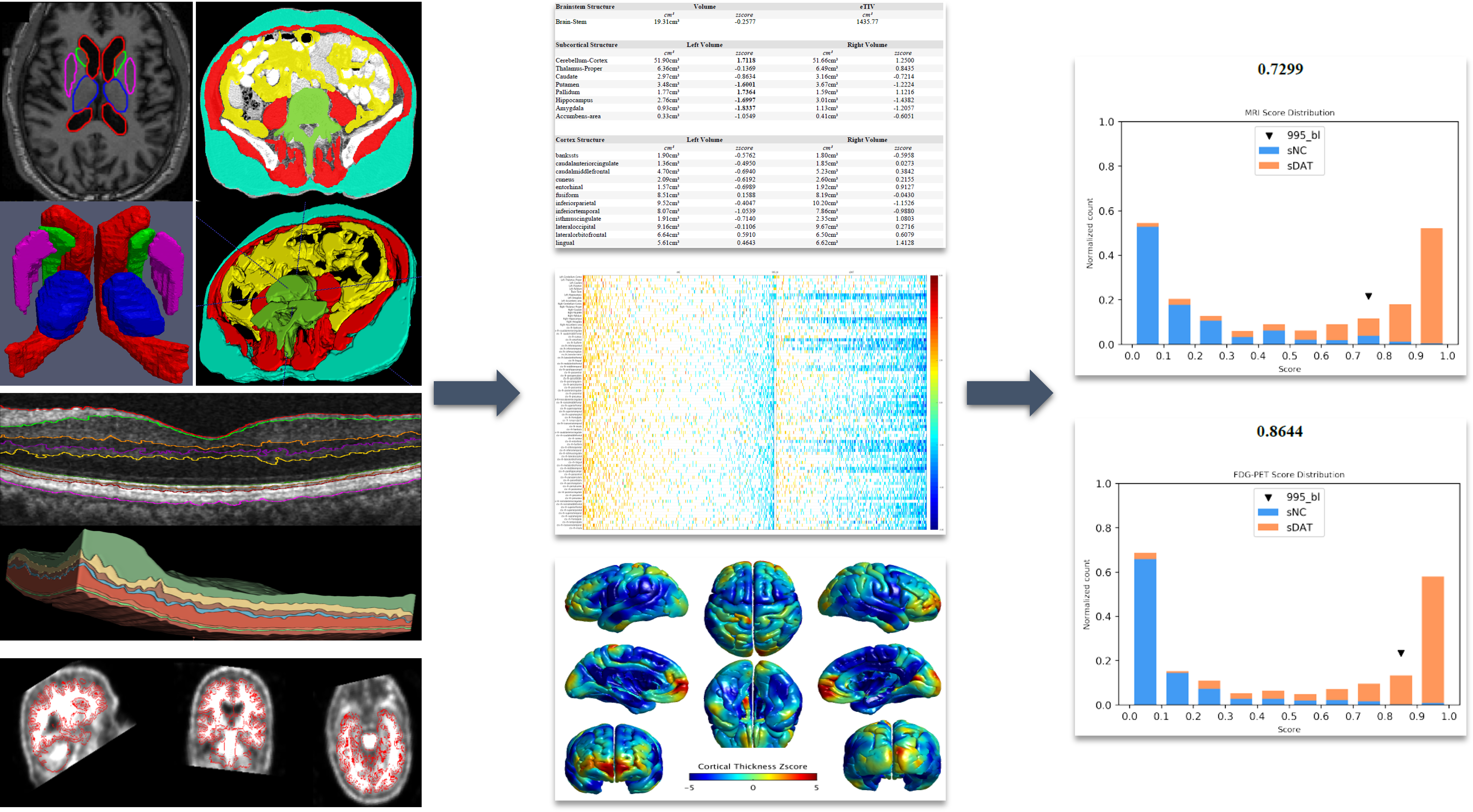Research focus

We develop novel and effective technologies for the automated interpretation of medical imaging data to aid clinicians in the decision-making processes related to various aspects of modern health care such as disease diagnosis, prognosis, treatment planning and post-treatment monitoring and care. Our research activities run the gamut from exploring more accurate and efficient fundamental image processing algorithms to engineering big data, artificial intelligence (AI) pipelines for high-throughput medical image data processing. A hallmark of our research program is a strong emphasis on the translation of our research outputs for practical clinical use. We therefore collaborate with clinicians and medical researchers world-wide to conduct large-scale epidemiological studies, in which we employ the advanced medical image analysis tools developed by our lab to discover biomarkers and underlying mechanisms of different diseases.
Specifically, we focus on developing automated medical image analysis pipelines to enable improved health care across multiple disease domains. Our work spans neurological (brain) diseases (e.g., Alzheimer’s disease (AD), Parkinson’s disease (PD), and fronto-temporal dementia (FTD)), eye/retinal diseases (e.g., Glaucoma, Age-related Macular Degeneration (AMD), and Diabetic Retinopathy (DR)), as well as cancer. To this end, we have compiled very large databases of magnetic resonance imaging (MRI), positron emission tomography (PET), and diffusion tensor imaging (DTI) of the human brain, along with optical coherence tomography (OCT) of the retina. More recently, we have expanded our efforts to include whole-body computed tomography (CT) imaging, with a focus on oncology. In the cancer domain, we aim to develop predictive models for patient outcomes, survival, and treatment response. Leveraging these rich multi-modal imaging datasets, we build robust and automated tools that extract disease-relevant features and enable data-driven diagnosis and prognostication using advanced machine learning techniques.